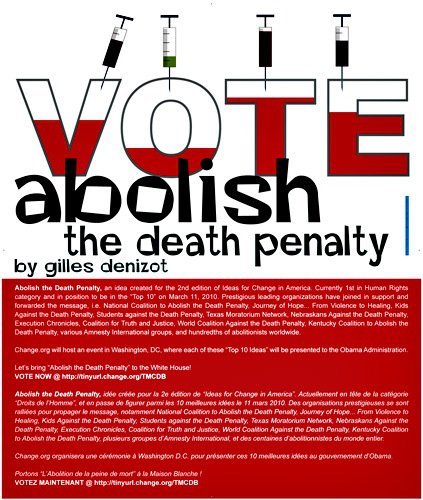WHEREAS an innocent person may already have been executed by Texas. The Chicago Tribune reported on December 9, 2004 that a Corsicana, Texas man named Cameron Todd Willingham may have been innocent of the arson/murder for which he was executed on February 17, 2004. A state-funded report commissioned by the Texas Forensic Science Commission written by fire expert Dr Craig Beyler said that “
a finding of arson could not be sustained” in the Willingham case. Beyler said that key testimony from a fire marshal at Willingham’s trial was “hardly consistent with a scientific mind-set and is more characteristic of mystics or psychics”; andWHEREAS eleven people have been exonerated of murder and released from Texas Death Row and 139 people have been exonerated and released from death rows in the United States since the death penalty was reinstated in the 1970’s; and
WHEREAS local taxpayers can be faced with the financial burden of settling lawsuits when innocent people are wrongfully convicted or executed because of problems in the criminal justice system; and
BE IT THEREFORE RESOLVED that the Texas Democratic Party supports a moratorium on executions and the creation of a “Texas Capital Punishment Commission” to study the administration of capital punishment in Texas to correct any injustices or unfair processes that are found in the administration of the death penalty and to study how to eliminate the risk of innocent people being convicted and executed.







 When James Suggs, an eyewitness to the robbery and murder of a Cincinnati bartender, was shown photo arrays of suspects by police, he identified two men—but neither of them was Derrick Jamison. There were also multiple contradictions between physical descriptions of the perpetrators given by witnesses and Derrick’s actual appearance. This information was withheld from Jamison’s trial, and as a result, an innocent man spent nearly 20 years on Ohio’s death row for a crime he did not commit.
When James Suggs, an eyewitness to the robbery and murder of a Cincinnati bartender, was shown photo arrays of suspects by police, he identified two men—but neither of them was Derrick Jamison. There were also multiple contradictions between physical descriptions of the perpetrators given by witnesses and Derrick’s actual appearance. This information was withheld from Jamison’s trial, and as a result, an innocent man spent nearly 20 years on Ohio’s death row for a crime he did not commit.




